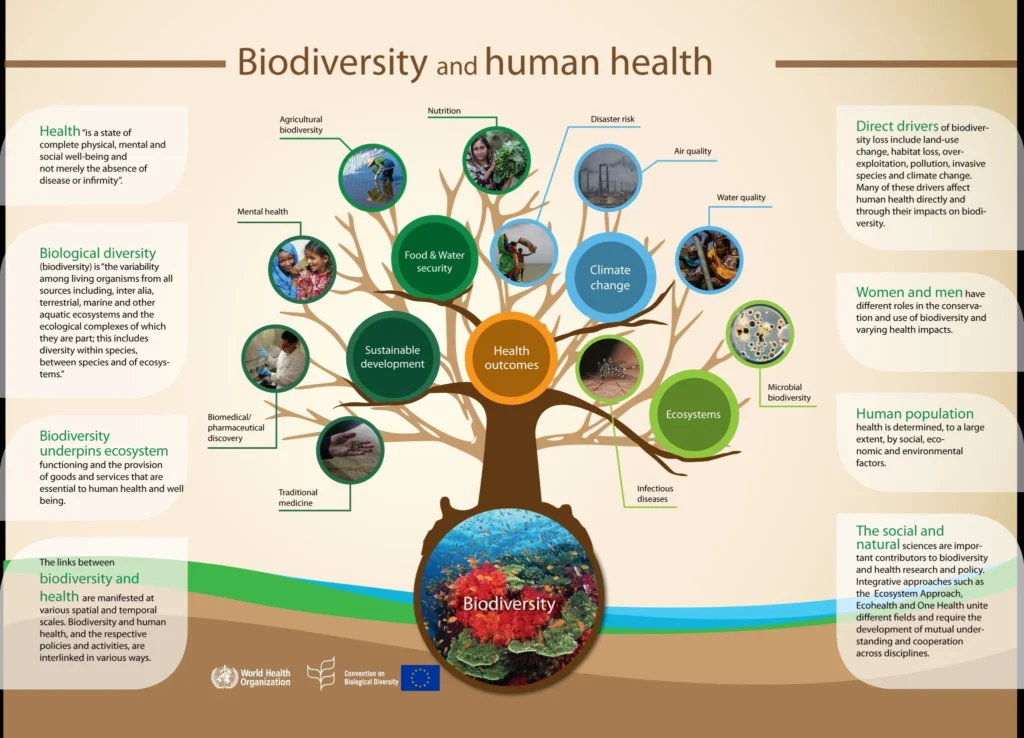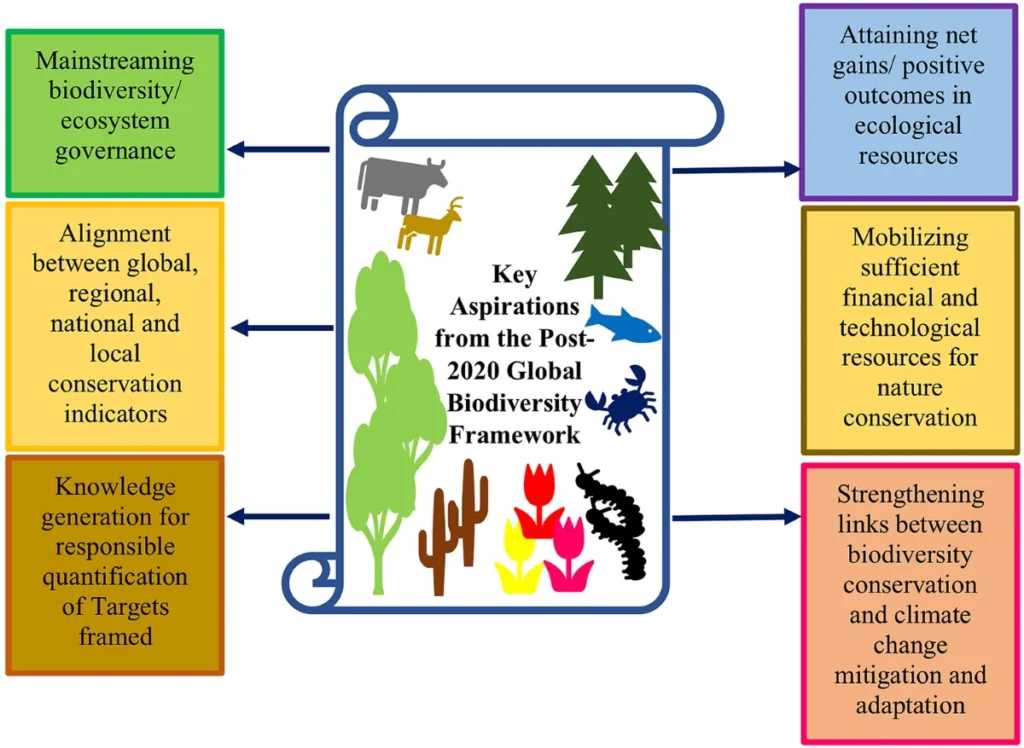The Global South, encompassing a vast and diverse array of developing countries, is a cradle of unparalleled biodiversity. It hosts the majority of the world’s remaining rainforests, coral reefs, and unique ecosystems, often serving as crucial carbon sinks and biodiversity hotspots.
Yet, these very regions disproportionately bear the brunt of global biodiversity loss, facing a complex web of governance challenges that threaten their natural heritage and the livelihoods of millions. Understanding these intricate issues is paramount to fostering equitable and effective conservation worldwide.
The Intertwined Crises: Biodiversity Loss and Systemic Vulnerabilities
Biodiversity loss in the Global South is not merely an ecological problem; it’s a systemic one, deeply intertwined with socio-economic disparities, historical legacies, and global consumption patterns. As highlighted by researchers, the extraction and processing of materials—from food and timber to minerals – for consumption primarily in wealthier nations drives a staggering 90% of biodiversity loss and water stress.
This places an immense burden on lower-income countries, where the impacts are most severely felt by poor and marginalized communities directly dependent on natural resources.

Key governance challenges emerge from this complex backdrop:
Institutional Weaknesses and Lack of Policy Coherence:
- Fragmented Governance: Many countries in the Global South contend with fragmented institutional landscapes, where multiple government agencies have overlapping mandates, leading to a lack of coordination and conflicting policies. This can hinder the holistic management required for biodiversity.
- Limited Capacity: Insufficient financial resources, inadequate technical expertise, and a shortage of skilled personnel often plague environmental ministries and agencies. This limits their ability to effectively formulate, implement, and enforce biodiversity laws and regulations.
- Weak Rule of Law & Corruption: Issues like corruption, lack of transparency, and weak accountability mechanisms can undermine environmental regulations, leading to illegal logging, poaching, and unbridled resource exploitation.
Socio-Economic Pressures and Inequities:
- Poverty and Livelihood Dependence: High levels of poverty often compel local communities to rely heavily on natural resources for survival, sometimes leading to unsustainable practices if alternative livelihoods are not available or supported.
- Land Tenure Insecurity: Unclear or insecure land tenure rights for indigenous peoples and local communities (IPLCs) can leave their territories vulnerable to external pressures from large-scale agriculture, mining, or infrastructure projects, leading to habitat destruction and displacement.
- Unequal Power Dynamics: Poorer countries often lack negotiating power in international trade relations, where demand for commodities in the Global North can drive destructive practices (e.g., palm oil expansion, overfishing in West African waters for European markets). This exemplifies a fundamental injustice in trade relations that exacerbates biodiversity loss.

Lack of Political Will and Mainstreaming:
- Prioritization Dilemmas: Governments in the Global South often face immense pressure to prioritize economic development and poverty reduction, sometimes at the expense of environmental protection. Biodiversity conservation may not be adequately integrated into national development plans.
- Limited Buy-in from Economic Sectors: There is often insufficient engagement from key economic sectors (agriculture, finance, industry) in biodiversity negotiations and implementation, leading to policies that lack “whole-of-government” approaches.
Integrating Knowledge Systems:
- Underutilization of Indigenous and Local Knowledge: While IPLCs possess invaluable Traditional Ecological Knowledge (TEK) crucial for sustainable resource management, their knowledge systems are often undervalued or excluded from formal biodiversity governance processes.
- Cultural Erosion: Globalization, urbanization, and displacement threaten the vitality of ILK systems, eroding traditional practices essential for conservation.
Financial Resource Gaps:
- Insufficient Funding: A significant global biodiversity finance gap exists, with current funding for conservation efforts being vastly inadequate, especially in the Global South. International financial mechanisms often fall short of the needs.
- Harmful Subsidies: Many countries still maintain environmentally harmful subsidies (e.g., for fossil fuels or unsustainable agriculture) that directly contribute to biodiversity loss, counteracting conservation efforts.
Climate Change Exacerbation:
- Increased Vulnerability: Climate change impacts (e.g., extreme weather, altered precipitation, rising temperatures) disproportionately affect biodiversity and dependent communities in the Global South, adding another layer of complexity to governance challenges.
- Intertwined Crises: The governance of biodiversity and climate change often operates in silos, missing opportunities for synergistic policies that address both crises simultaneously.
Towards Equitable and Effective Governance: The Path Forward
Addressing these challenges requires a multi-faceted approach, emphasizing equity, participation, and robust implementation. Organizations like SwedBio play a critical role in this transition by focusing on advancing sustainable and equitable governance of biodiversity knowledge and policy. Their work to foster dialogues, co-produce knowledge across diverse systems, and empower local actors is exactly what we need.

Key strategies for improving biodiversity governance in the Global South include:
- Strengthening Legal and Institutional Frameworks: Developing clear, enforceable laws, building capacity within environmental agencies, and promoting transparency and accountability.
- Ensuring Equitable Participation and Rights: Recognizing and securing the land tenure and resource rights of Indigenous Peoples and Local Communities (IPLCs). Empowering their full and effective participation in decision-making processes, as emphasized by the Kunming-Montreal Global Biodiversity Framework (GBF).
- Integrating Indigenous and Local Knowledge: Actively seeking, respecting, and integrating TEK into biodiversity assessments, policy formulation, and management practices.
- Mobilizing Adequate and Equitable Finance: Scaling up public and private investment in nature, reforming harmful subsidies, and establishing financial mechanisms that compensate the Global South for biodiversity loss driven by global consumption patterns. The discussions around “loss and damage” for biodiversity, similar to climate change, are crucial here.
- Enhancing Policy Coherence: Ensuring that biodiversity objectives are mainstreamed across all sectors of government and development planning, moving beyond siloed environmental policies.
- South-South Cooperation and Knowledge Exchange: Facilitating the sharing of best practices and experiences among countries in the Global South to build collective capacity and innovative solutions.
- Addressing Global Consumption Patterns: Advocating for more sustainable production and consumption patterns in the Global North to reduce the external pressures on biodiversity in the Global South.
The fate of global biodiversity hinges significantly on the ability to overcome these governance challenges in the Global South. By fostering genuine partnerships, valuing diverse knowledge systems, and ensuring equitable resource management, we can collectively work towards a future where nature thrives and human well-being is secured.
